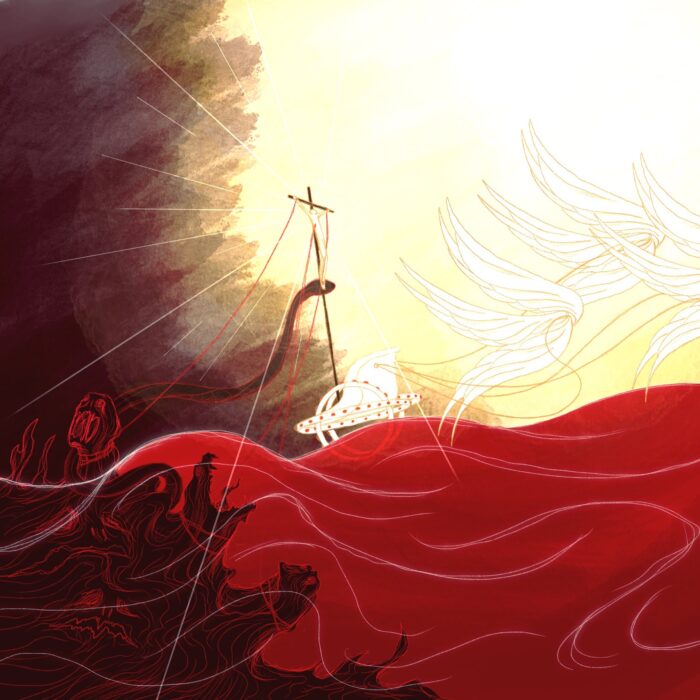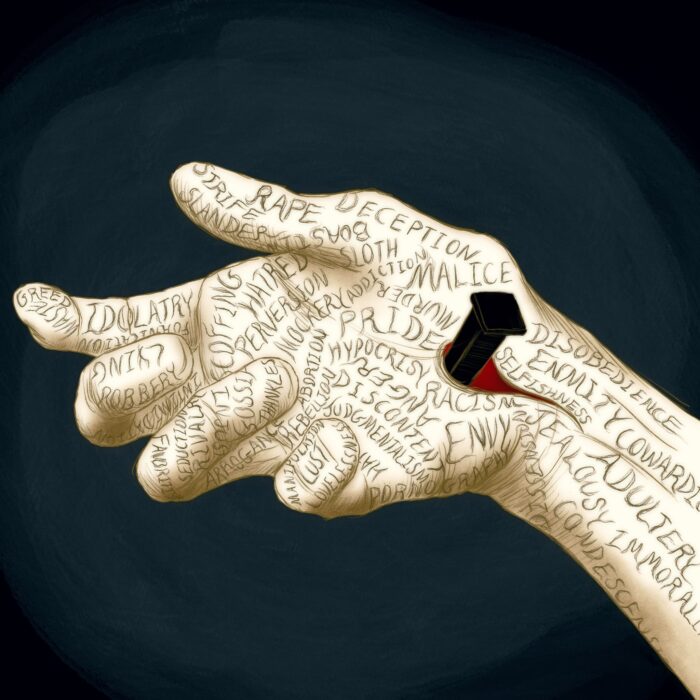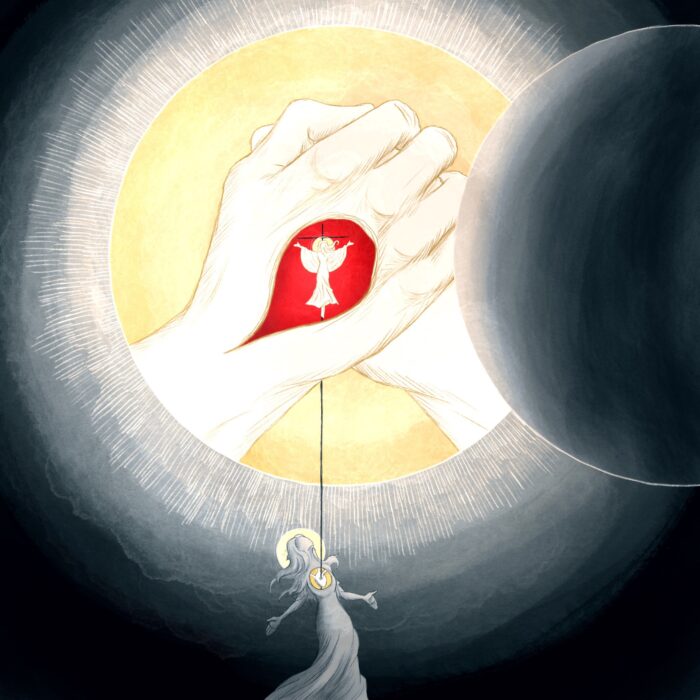Colossians 1:20, “…and through him to reconcile to himself all things, whether on earth or in heaven, making peace by the blood of his cross.”
The same all things that were created in and through Christ as their source and ground, the same all things that exist for Christ as their telos (Col.1:16), and the same all things that continually subsist in Christ as their ongoing ontological basis (1:17), this same “all things” is reconciled to God through the blood of Christ’s cross—that is, through His death (v.22).
When Christ, in whom all things subsist, dies—do not all things die in Him? And when this same Christ is raised up again, are not all things raised up to newness of life in Him? Is that not Paul’s train of thought here? It seems that he is indeed thinking something along these lines.
Paul first explains how all things, without exception, come from, exist for and are sustained by Jesus Christ, and then he says that this same Christ—having become the first not only of creation (the incarnate Christ being the ontological ground of all created being since in Him alone creation and Creator are united such that creation might receive form and being from He Who is in Himself Being and Form), but also of the new creation (since He is the first of those truly born from the dead, that is, the first to be raised in a new-creational, resurrection body—Paul says that this same Christ has—through His death and resurrection—reconciled “all things” to God. Certainly the “all things” reconciled are the same “all things” as the “all things” which are from and for Him.
Now, Paul does not say in what way all things are reconciled, other than that peace is made by the blood of Christ’s cross. The following verses (21-23) present the possibility that an individual soul may still be “lost” in the end, and so I don’t think we can simply label Paul’s vision of pan-reconciliation as equivalent with universalism. It seems to be more nuanced than that (Just as YHWH’s purposes for Israel’s exile was more nuanced than “the temple is rebuilt, you all come back to Jerusalem, and everything is like it was before”)…..However, I do certainly believe that this-an-reconciliation IS equivalent to the medieval concept of pancalism (pan=all, kalos=beautiful), namely, that—in the end—all things will be beautiful beyond bearing.
Notice how these things are reconciled….by the blood of Christ’s cross, or—verse 22–in the body of Christ’s flesh through death. The reconciliation happens through the death (and, by implication, resurrection) of Jesus. The death of the one in whom all things subsist….that is how the all things that subsist in Him are reconciled to God. So, it would seem the reconciliation is achieved and peace is made when all of created reality DIES in the death of Him in whom it subsists, and when all of created reality is subsequently RAISED in the resurrection of that same one.
In that sense—Calvary is not just my judgment day as a Christian who has died with Christ to sin and the law and its curse and has been raised up with Christ to newness of life, more than that, Calvary is the universal judgment day. Calvary is the “end of the world” because it is the death of Him in whom all things consist, the death of Him from and for whom all things exist…..When a mind dies, all the ideas that subsist in it die as well; similarly, Christ’s death was truly the death, the destruction, the judgment of all things in Him—which is ALL things without exception. And His resurrection truly is the raising up into newness of life that same “all things” so that—in Him—creation has been and will be set free from its bondage to corruption and will attain to the glorious freedom of the children of God (who are also in Him).
When we arrive, then, at the day of judgment…..when heaven and earth flee away from the presence of the risen Lamb….when the heavens dissolve and the earth melts and all people are raised up to stand in judgment…..on that day we will know that ALL OF THIS is happening in (and has—as it were—already happened in) the crucifixion of Jesus Christ…..we have already seen the end of the world in the death of Him in whom the world subsists……..and beyond that, we have seen the resurrection and so the reconciliation of the world as well, in the resurrection of that same “Cosmic Christ.”
Again I ask, how is this not universalism? Simply because Paul does not speak that way….Not only in the immediately following verses, but in many other places in his letters, this same Paul who believes in universal reconciliation does not seem to believe in universal salvation…What do we do with that tension? My response is to bow my imagination down before God’s revelation….to confess and embrace the truth that what He has said and done will be infinitely more beautiful than what the most gracious created imagination could conceive….I leave the end result of history in the love-pierced hands of the Lord and trust Him to make it beautiful to the praise of the Father’s name beyond any possible improvement….
What we are given to do is to hold to what He has revealed and to act in accordance with it…..And what He has revealed is that, directly after talking about this universal reconciliation, Paul warns the Colossians that they too are reconciled and will stand before the Lord in glory ONLY IF they hold fast to the hope they have in the gospel. Thus, Paul follows up his presentation of universal reconciliation with a warning to hold fast to the gospel or else remain an enemy of God. We too, then—if we would enjoy reconciliation to the Triune God—must hold fast to and call those around us with earnest sincerity to hold fast to the gospel of the glory of Jesus Christ.
If we strum a guitar, we get a confused, indistinct sound…..melodic reconciliation only comes as some strings are silenced, this may be an analogy for the reconciliation Paul envisions in Colossians 1:20….




